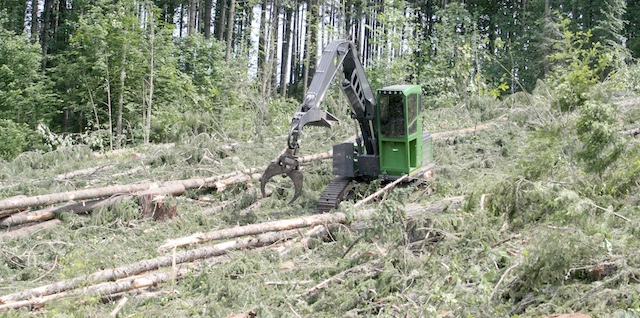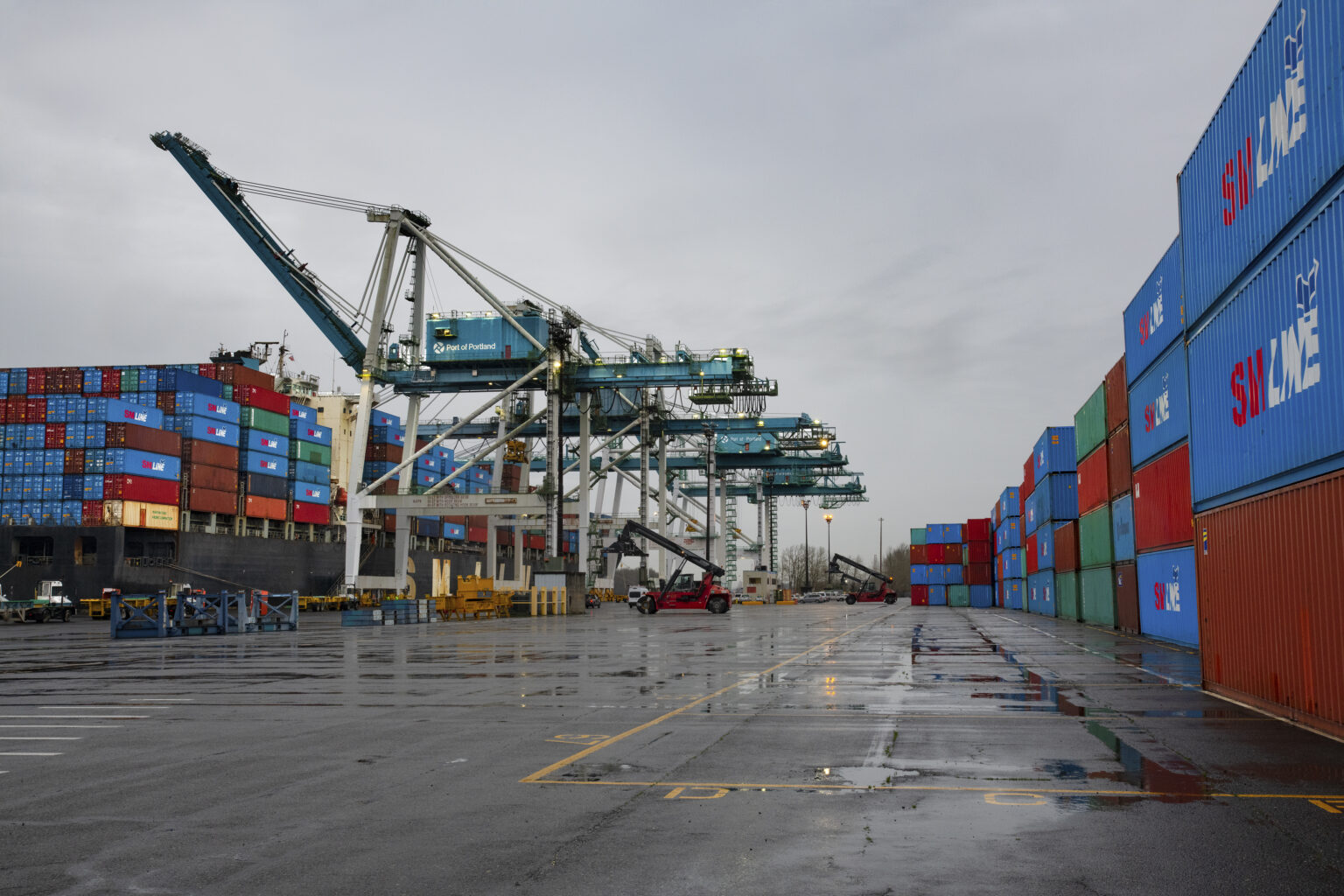Timber severance tax ignites wildfire funding debate
Published 1:37 pm Friday, April 25, 2025

- Logs are harvested in Oregon's Cascade Range in this file photo. Lawmakers are considering a timber severance tax that critics say could drive up harvest taxes by 800%. (Mateusz Perkowski/Capital Press)
Timber harvests would be taxed based on value, rather than log volume, under a controversial Oregon bill that aims to raise more money for wildfire protection.
For the past three decades, Oregon landowners have been taxed according to the quantity of logs harvested from their properties.
Critics argue this system allows massive “real estate investment trusts,” or REITs, to avoid paying their fair share for forest firefighting and other state services because they’re not subject to corporate taxes.
Trending
“With the budget crunch we’re facing, we can’t afford to let the REITs keep free-riding,” said Andrew Allen, a timber tax reform proponent from Portland, Ore., during a recent legislative hearing.
Under House Bill 3489, the current method would be replaced with a “severance tax” ranging from 2% to 6% of the value of harvested logs, with the rate increasing according to the size of the landowner’s forest property.
The Oregon Forest Industries Council has derided the proposal as “the hobbyhorse of a small group of individuals” who care less about raising funds for firefighting than “seeking a pound of flesh” from an industry they scorn.
The bill would increase harvest taxes on Oregon forestland owners by at least 500% and more likely by 800%, roughly doubling the overall taxes paid by the state’s forestry and wood products sector, according to OFIC.
While there’s “no better place to grow and harvest trees,” the tax hike is severe enough to erode the market share of Oregon’s timber industry relative to other regions and construction materials, said Tyler Ernst, OFIC’s general counsel and director of regulatory affairs.
“The forest sector here must compete in a global marketplace,” he said.
Trending
Supporters say the proposal is necessary because more Oregon’s forestlands are now owned by REITs, such as Weyerhaeuser, which don’t have to pay corporate income taxes as long as their assets are mostly limited to real estate.
“This is about fairness across the wildfire funding system and within the timber industry itself,” said Sen. Jeff Golden, D-Ashland, noting that smaller forestland owners are generally on the hook for state income taxes, while REITs are not.
Aside from restrictions on owning manufacturing facilities, REITs are required to pass at least 90% of their profits along to investors to avoid corporate taxes.
The structure effectively allows shareholders to pool their resources and invest in large properties they couldn’t afford on their own, while sparing them from paying taxes at both the personal and corporate levels.
However, critics argue that such entities skirt taxes despite taking advantage of government services and contributing little in the way of jobs to local communities.
“Like all successful parasites, they benefit from hosts who are barely aware of their existence,” said Glenn Begis, a supporter of HB 3489 from Gaston, Ore.
Though the owners of REITs must pay income taxes at the individual level, they often live outside the state, which proponents of HB 3489 claim has deprived Oregon of money it needs to suppress fires on private forests.
“We are effectively making everybody else subsidize their costs,” said Rep. Mark Gamba, D-Milwaukie, the bill’s chief sponsor. “It didn’t use to work this way and there’s no good reason we can’t fix it.”
Proponents say HB 3489 will not encumber small forestland owners financially because the severance tax wouldn’t apply to timber harvests of less than 25,000 board feet a year.
Also, the severance tax would be reduced by the amount that landowners pay in income taxes, which is intended to largely negate the new obligation for everyone but REITs.
“This bill ensures the burden will not be primarily on the small forestland owners,” said Rand Schenk, representative of the Mobilizing Climate Action Together organization.
Despite these provisions, the proposal is opposed not only by OFIC but also Oregon Small Woodlands Association, Oregon Farm Bureau and Oregon Business & Industry organization.
The severance tax would increase the tax bill for B&G Logging of Philomath, Ore., by about $2 million a year, jeopardizing its employees and operations, said Levi Beelart, the company’s owner.
“I would have to shut doors down immediately, because I could not pay for that,” he said.
Inflation has outpaced lumber prices, which already endangers forestland owners who often invest in timber for decades before it generates any revenues, said Greg Peterson, a small woodland owner from Corvallis, Ore.
The bill’s exemption for timber harvests below 25,000 board feet wouldn’t shield small operators from the severance tax, he said. To justify the costs involved, they generally surpass that threshold by logging large swaths of their land all at once rather than in annual increments.
“We don’t harvest every year. We’re not like the big timber companies,” he said.
Provisions that would increase the tax rate based on acreage are misguided, because profits in agriculture and forestry often don’t rise in proportion to the scale of production, said Lauren Kuenzi, Oregon Farm Bureau’s government and political affairs director.
“Size and profitability are not linked in a way that should influence tax policy,” she said.





